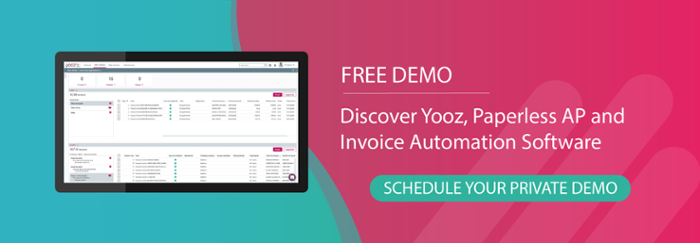Thirty years is a small eternity in the tech world, but that’s how long Enterprise Resource Planning (ERP) software have been around. What was developed as various individual software suites designed to run core processes for such as manufacturing, finance, human resources, supply chain, and procurement this technology has evolved into a single, consolidated entity. Today's ERP systems cover a much broader range of functions, typically reside in the cloud, are increasingly augmented by Artificial Intelligence (AI), and - equally important - are extendable to offer customers and users even more capabilities.
That interoperability across the cloud is in no small part driven by the fact that an ERP software suite is a multi-purpose, generalist tool designed to work with companies of all sizes and across industries. What’s often missing from ERP suites, though, are specific, specialized features that automated financial systems both use and need. This is especially true when it comes to the Accounts Payable process.
The Importance of the Accounts Payable Function
Of all the financial system, the Accounts Payable (AP) function is perhaps one of the most important. The AP area is the part of the financial department tasked with processing and reviewing transactions (paper or electronic) between the company and suppliers (or customers), then ensuring that all the data from those incoming documents is properly recorded, that invoices are approved, and eventually that payment is issued.
While this may seem fairly straightforward and simple, the reality is that how well the process is conducted will have a significant impact on company operations. And it is worth mentioning that the process contains plenty of potential pitfalls both obvious and subtle.
For example, historically the AP (invoice) process workflow has been manual. The dependency on human labor has unique issues, ranging from the fact that the simple quantity of incoming documents can be overwhelming. The larger the number of documents, the longer they take to process and the more potential for errors. All the documents need to arrive into the system, including physical transportation, analysis, and input. They need to be processed and reviewed, hopefully any errors such as duplicates or false charges caught, and then approved. If the designated approver is away? And nobody else able to take their place? What about post approval, with checks needing to be produced, signed, and sent? How are all of the documents archived? What happens when payments are delayed or simply late, and will that affect future supplier contracts? Plus, there is the difficulty in tracking everything and doing so in a legally acceptable format (that hopefully makes audits, analyses, or taxes somewhat painless).
The conclusion should be easy: if the AP function doesn't run smoothly, the foundation of business - the finances and vendor partnerships that make the company function - don't run smoothly.
What is AP Automation
The good news is that as technology evolved, so did paperless solutions for overcoming or eliminating pitfalls in the process. Just imagine an option for transforming the manual, repetitive, and time-consuming aspects of document processing into a streamlined, digital environment capable of increasing growth, driving productivity, and reducing costs? This option already exists in the form of AP automation.
In other words, AP automation ensures that the AP process runs smoothly. It provides a reliable, secure 24/7 capability to continuously capture invoices across multiple channels, quickly review and vet them, then route them for approval and eventually payment. Automation doesn't get tired, and smart automation learns from every transaction.
Why Look Outside My ERP's Existing AP Automation Capability
Because of the clear benefits, many ERPs already have some form of AP automation in place. If so, why would the ERP provide any kind of extension or partnering capability and why would a company care?
Remember that as mentioned before, an ERP is designed to cover a broad range of functions which often include some level of AP automation capability. However, the key word here is "broad." The ERP offers an all-encompassing approach that forces it to be a generalist whereas a specialized automation platform solution provider can offer specific, specialized features.
For example, the SAP software suite offers a comprehensive solution that includes AP automation. However, with such an important function requiring specific focus, SAP created a digital collaborative environment to benefit customers. This includes technology partners whose systems are compatible with the SAP environment and are specifically integrated with the SAP capabilities to provide a seamless process experience.
Yooz is one such partner. When it comes to handling purchase orders, invoices and other documents related to the AP function, a specialized platform for purchase-to-pay automation such as cloud-based Yooz offers companies the ability to augment and maximize their investment in an SAP system. Seamless integration with your ERP is the secret to supercharging the finance function end to end and making the most of SAP AP automation.
The Power of the SAP / Yooz Partnership
If you are looking to get the most out of your digital transformation - leveraging technology to grow faster, enter new markets, improves resiliency, and just remain competitive - the power combo of Yooz AP automation plus SAP is the AP automation solution to make it happen. The partnership offers a seamless integration right out of the box, where information is shared (and searchable) between companies in real time. This means that together the two companies are operating as a single (now supercharged) system that makes the entire workflow from the moment a PO is issued to payment easy to track, fast to search, and thanks to Yooz's advanced three-way matching process much more secure against errors and fraud.
You'll still have:
- A complete view of your AP operations
- Increased visibility across AP processes
- Empowered employees that are empowered and challenged
- Digital tracking and storage
You'll also have the ability to:
- Review and approve invoices from anywhere, anytime
- Identify discrepancies at the very beginning and route them as appropriate (saving time and cost)
- Expand Yooz usage as needed (no contract required and the ability to grow alongside your company
- Take advantage of early payment discounts versus late payment fines.
Benefit from Seamless and Painless Integration
SAP AP automation with Yooz offers a powerful combination designed to unlock a new level of productivity and efficiency, one characterized by paying every invoice on time and empowering the team with maximum freedom to be creative and love their job. Not only does it usher in a new level of capability when working with automated financial systems, it supports you in getting the maximum return out of your ERP system investment.
Don't wait! Reach out today to learn more.
FAQs
How does Yooz integrate with SAP to automate the accounts payable process?
What benefits can we expect from using Yooz for AP automation with our existing SAP system?
Can Yooz handle complex SAP environments with multiple entities, currencies, and languages?
How does Yooz ensure the security and compliance of our AP process when integrated with SAP?







